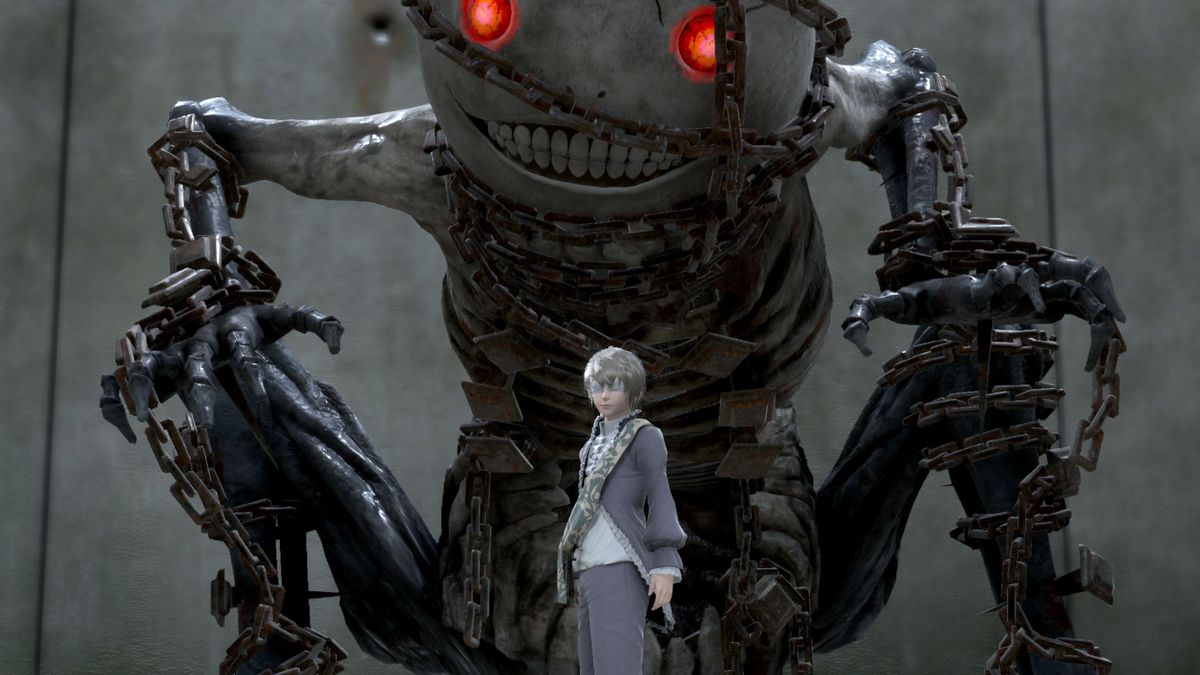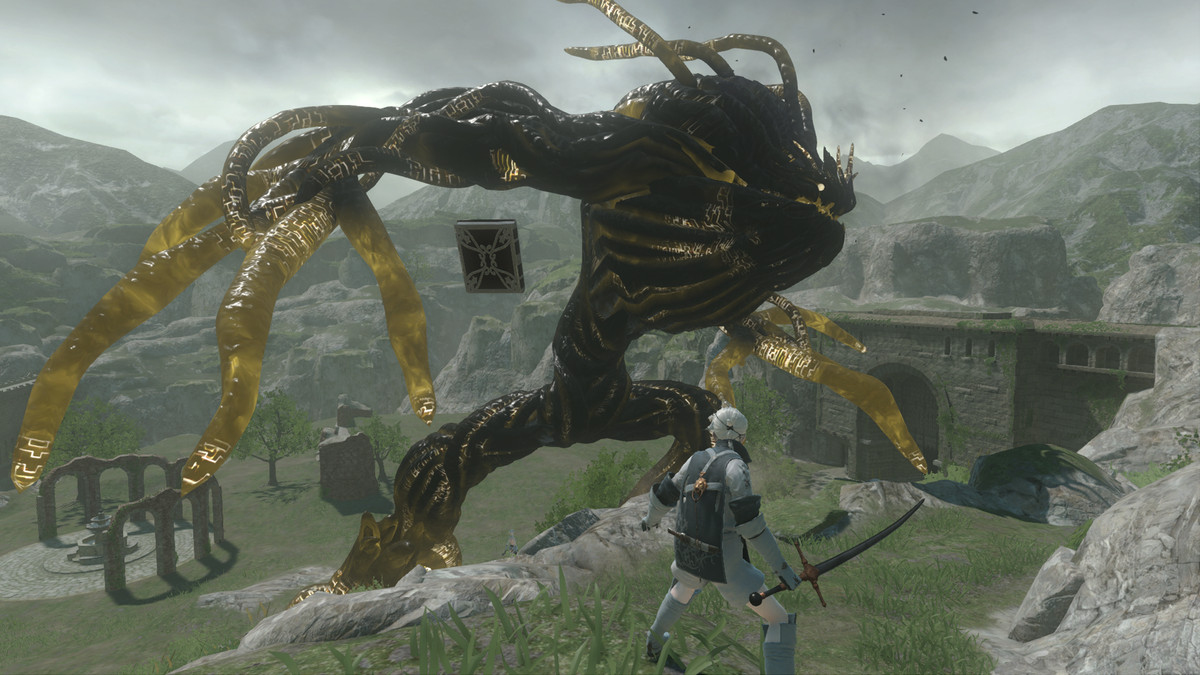Nier: Replicant is a shape-shifter. It makes you think it’s a simple action roleplaying game set in a bleak fantasy universe, but steadily reveals itself to be a lot more. It’s a game that shifts wildly in both tone and play style. It’s weird and heartbreaking, frustrating and playful, often all at the same time. This release is also a second chance for a game that failed to reach a big audience when it first launched in 2010, now updated for modern tastes. It still requires a little patience — but it’s worth putting up with some clunky gameplay to find all that Replicant has to offer.
If the Nier name sounds familiar, it’s probably because of Nier: Automata, a 2017 action-RPG from director Yoko Taro and studio PlatinumGames that became a surprise hit. Its blend of tight action, haunting storytelling, and downright absurdity helped it reach an audience of more than 5 million players. It also renewed interest in the original Nier, hence this new release, which has been given the incredibly awkward-but-fitting title Nier Replicant ver.1.22474487139… This version isn’t exactly a full remake but instead an updated version that sands off some of the original’s rough edges.

Replicant is not an easy game to explain. The story starts out in the near future, where some kind of plague is decimating humanity; it then fast-forwards a few thousand years into a future when the world is pretty much unrecognizable. There are elements of a traditional post-apocalyptic landscape, like the ruins of our society, but the world of Nier more closely resembles a fantasy realm with magic and monsters and lots of big swords.
The fascinating world is a large part of the appeal, and you’ll spend a lot of time crisscrossing it over the course of Replicant. It’s bleak and desolate, with small pockets of humanity still surviving. The game puts you in the role of a young fighter on a desperate mission to cure his sister, who’s struggling from a strange and mysterious disease that’s steadily spreading throughout the world, which also happens to be dealing with an onslaught of dark monsters called shades. It’s a dangerous place, and you’re eventually joined by a cast of characters including a talking spell book, a warrior perpetually dressed in lingerie, and a young boy with magical powers.
In some ways, Replicant is like a traditional fantasy RPG. You’re on an epic quest — which eventually includes not only finding a cure but fighting the big baddie in charge of all the monsters — and along the way you’ll acquire new abilities and weapons. But those aren’t the things that make Replicant interesting. It’s when the game goes in unexpected directions that it’s at its best. You’ll visit strange towns, including one where the residents strictly follow thousands of rules, and another where everyone refuses to leave their homes.
The most jarring moments, though, are when the game shifts genres. That includes exploring an underground research facility as if you were playing an isometric RPG like Diablo, and slinking your way through a Resident Evil-style haunted mansion. At one point, Replicant basically becomes a novel where you read through a town’s shared hallucination. When the game returns to its standard action setup, it’s like waking up from a surreal dream.

I didn’t play the original Nier, so the most that I can say about the changes in this new version is that the game now feels a lot like Automata — which is to say it’s a mostly modern action game with fast and frantic combat, massive bosses, and an appropriately dreary world to explore. But despite the revamped visuals and gameplay, Replicant still has some dated elements. For one thing, it’s very repetitive; you’ll be going on a lot of fetch quests and fighting countless, nearly identical shades along the way. These quests are often interesting narratively, but there are only so many times you can run across the same open field before it starts to get dull, especially since the game often forces you to revisit locations multiple times.
It’s worth pushing through those mundane moments, though, because much like Automata, Replicant is absolutely packed with fascinating, heartbreaking moments. There are big, obvious ones — characters sacrificing themselves for their friends or the torture of watching someone struggle with illness — but at times it feels like every moment in Replicant is tinged with sadness. There are twists that will make you question your own actions, and others that will completely change how you view a character. Hell, even the weapons have interesting stories; each new sword you get comes with its own brief snippet of lore.
It’s this heartfelt element that makes Replicant worth experiencing (multiple times, if you want the full story). It may be clunky in places, and uncomfortable in others, but once you settle into its strange rhythm, there’s really nothing else like it — well, aside from Automata. But this is exactly what you should play if you’re craving more of Taro’s unique vision.
Nier: Replicant is out now on the PS4, Xbox One, and Steam.
https://www.theverge.com/22399150/nier-replicant-review-ps4-xbox-steam

